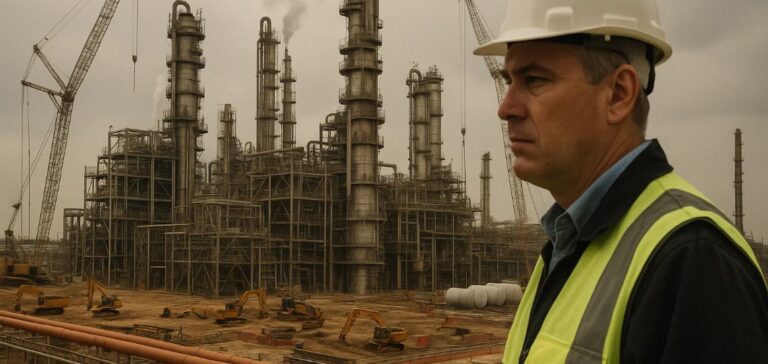Rönesans Holding, one of Turkey’s largest construction and investment conglomerates, has closed the financing for its polypropylene (PP) production plant and terminal project, a private investment valued at $2 billion. This project marks one of the largest industrial initiatives ever undertaken in the country, with a direct estimated impact of $300 million annually on Turkey’s balance of payments.
The project is divided into two distinct components, each separately financed by international lenders. The first component involves the construction of the PP production plant, with an annual production capacity of 472,500 tonnes, meeting about 17% of Turkey’s annual PP demand. This project is being developed in partnership with SONATRACH, which will supply the necessary raw materials for production. PP is a key material for many industries in Turkey and Europe.
Erman Ilıcak, Honorary President of Rönesans Holding, emphasized that this project demonstrates the company’s commitment to supporting Turkey’s economic and industrial ambitions while creating hundreds of jobs and enhancing the resilience of the country’s supply chain. “This project will be a catalyst for a more competitive and resilient supply chain for PP, a vital material for many industries in Turkey and Europe,” he stated.
The second component of the project involves a storage terminal developed in partnership with Stolt-Nielsen. This terminal will provide bulk liquid storage services and ensure the logistics necessary to support the PP plant and other future customers. Stolt-Nielsen, with more than 50 years of experience in bulk liquid storage, is a key player in this large-scale project.
International financing and financial support
The initiative has attracted significant financial support from international lenders, with a financing package totaling $1.3 billion. The U.S. International Development Finance Corporation (DFC) played a leading role in financing the PP production plant, while coverage by Spain’s Export Credit Agency, Cesce, facilitated financing for both the plant and the terminal. This financing underscores the global importance of the project and its potential to attract foreign direct investment into Turkey.
Reducing import dependence and regional development
Turkey is one of the world’s largest importers of PP, with demand driven primarily by the automotive, textile, and packaging sectors. Domestic production of PP currently meets only a small fraction of this demand. Once operational, the Ceyhan plant will significantly reduce Turkey’s reliance on imports by producing a substantial portion of the PP needed for the Turkish economy.
The project is also expected to create 4,500 construction jobs during the development phase and approximately 300 permanent jobs once the plant is operational. Additionally, a training program, including a welding school, will be set up to support the development of local skills and promote professional integration in the Ceyhan region.






















